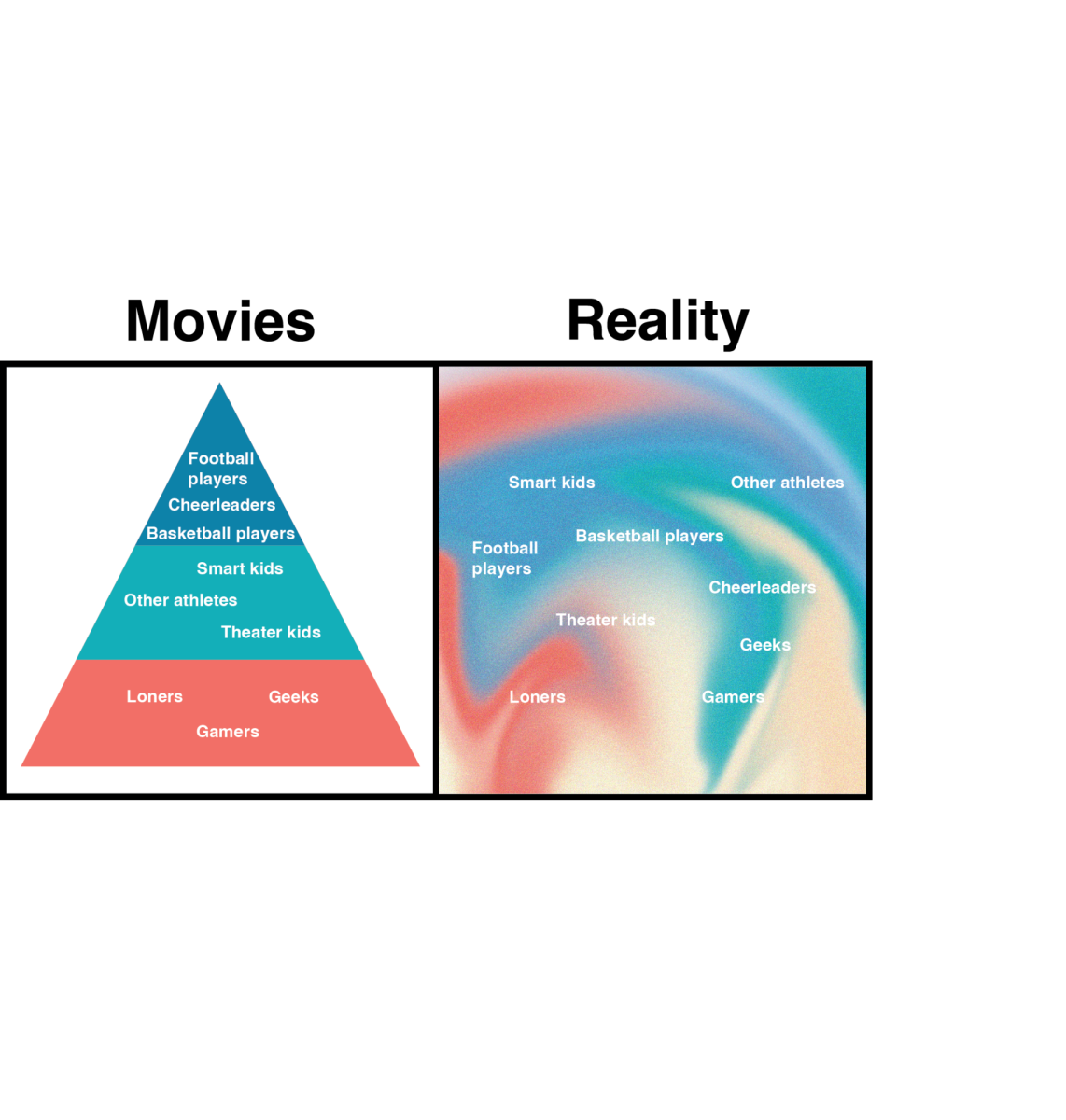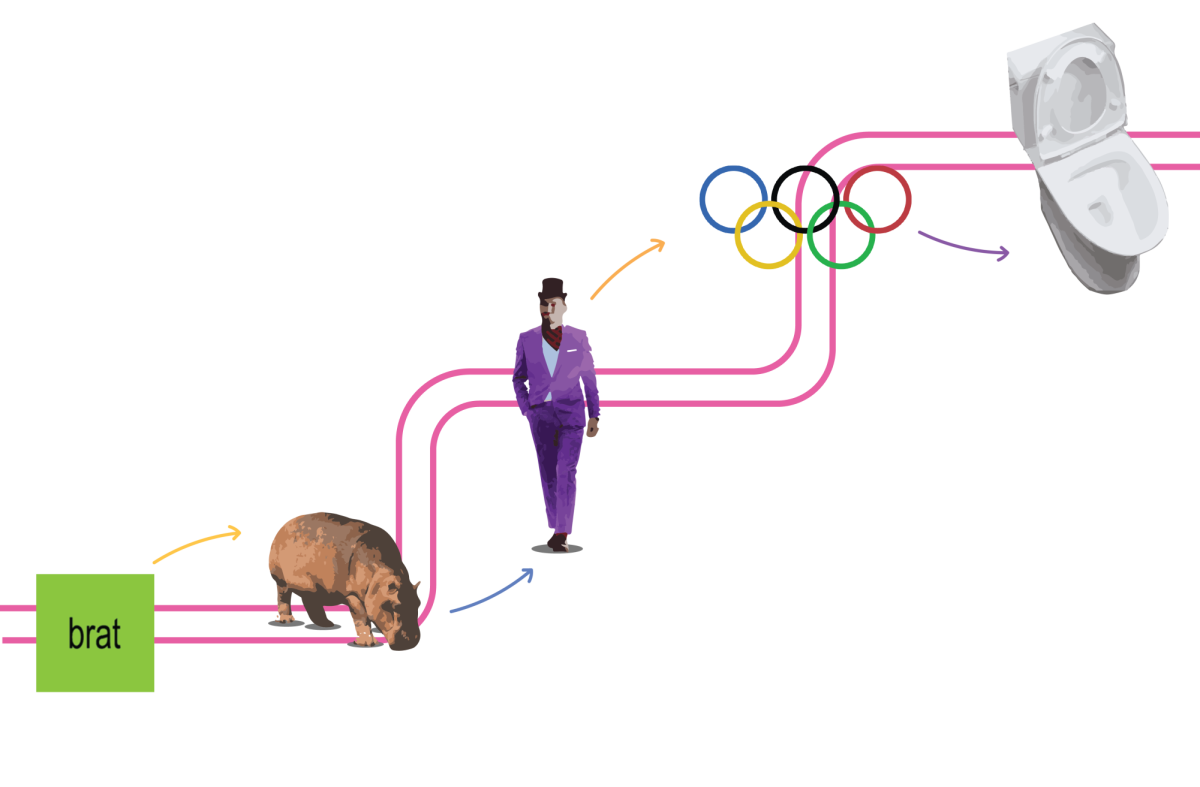“Stereotypes are how our brain works,” psychology teacher Donna Walker said. “Our brain is constantly seeking to simplify and categorize the world around us.”
A study published in the Nature Neuroscience journal reported that the neurons in the brain that respond to things such as race, gender and emotion are linked by stereotypes, impacting the way we immediately perceive people upon first glance.
“It’s an evolutionary advantage to accept what the world around you presents,” Walker said. “It would take decades or generations to lose that idea.”
The Journal of Cognitive Neuroscience found that the human brain is predisposed to learn and accept negative stereotypes, and revealed that the brain does not respond equally to good and bad information.
When participants were given information that went against a stereotype, brain activity in their prefrontal cortex was stronger, showing that the brain does not as easily accept stereotypes when they are challenged. The natural instinct to stereotype comes from evolutionary experiences and has influenced how the human brain develops.
“[Negative information] may have been more important for your own survival in ancient times,” said Bastian Schiller, a neuroscientist at the University of Freiburg in Germany in an article in The Guardian. “It might be more important to store that in your brain.”
Walker said that because it has evolutionary roots, stereotyping is difficult to combat. Scientists have discovered that stereotypes have a psychological impact on individuals’ performances.
“Stereotype threat” is a psychological phenomenon that refers to the fear of doing something that would play into the negative stereotypes associated with a social group.
Social psychologists Claude Steele and Joshua Aronson conducted a study where they observed stereotype threat. They found how racial stereotypes can impact the expression of intellectual ability. When told that the test was “diagnostic” and would test their intellectual abilities, Black participants performed worse than white participants. However, when they were not given this description, both groups of participants performed similarly on the test. The impact that these stereotypes had on the test participants went so far as to impact their performance, reinforcing the stereotypes surrounding race.
“It all depends on if society is willing to discuss how stereotypes affect us,” Cruzada said.
Stereotypes are a persistent aspect of human nature; they come from an innate need to navigate and explain the world. There is no shortage of stereotypes prevalent in society, with aspects like race, gender, and culture all subject to stereotyping.
The pink vs. blue gender stereotype played a large role in reinforcing gender norms and inequality. But it wasn’t always “pink for girls” and “blue for boys.” A 1918 Ladies Home
Journal article stated that boys were dressed in pink because it was a stronger, more decided color, while blue was more acceptable for girls because it was considered dainty.
As time went on, girls were reassigned pink because of how close it was to red, a romantic color, and women were considered more emotional. This shows how stereotypes have the ability to evolve through a changing society.
A study conducted by The British Psychological Society investigated the development of gender-stereotyped color preferences. Children from the ages 7 months to 5 years were asked to choose different colored objects, one of them always being pink. By 2 years old, girls chose pink more often then the boys and as the boys got older, they had an increasing avoidance of pink.
The boys’ aversion to pink at a young age showed that assigning specific colors to gender reinforces stereotypes and continues to impact younger generations.
“Unfortunately, we have very negative stereotypes about specific groups of people,” Walker said. “But I think stereotypes can also make people want to work against it.”
Many researchers say stereotypes evolve like language, changing and developing as they pass from person to person. Gathering the motivation to look beyond stereotypes can start a much-needed conversation about their impacts on society.
As parents begin to shift away from traditional gender stereotypes and start to embrace gender neutral products for their children it helps create a less prejudiced, confirming society. This gives the younger generations an opportunity to grow and view the world outside of the stereotypes they are born into.
“Stereotypes will always exist for as long as we have humans because that’s the way our brains are designed to work,” Walker said. “It helps you deal with that person to negotiate, navigate, and communicate with someone that you’ve never met.”
















